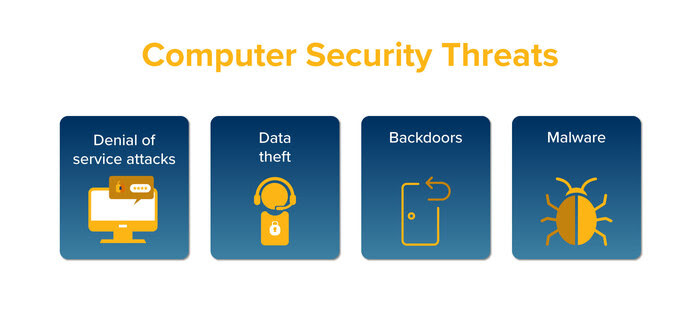Computers and the internet have transformed almost every aspect of our personal and professional lives. Computers are vital to most modern businesses — but risk comes with that indispensability. Protecting business data is an important consideration for any organization, making computer safety a priority. Sensitive information is often valuable, making computer systems targets to thieves and hackers.
But what is computer security? Computer security refers to measures and controls that ensure the confidentiality, integrity and availability of the information processed and stored by a computer. This includes everything from protecting physical information assets, to data security and computer safety practices. Computer security ensures that a business’s data and computer systems are safe from breaches and unauthorized access.
Learning about computer security can help you build new skills to apply in your current role, or help you start on an entirely new career path. Computer security skills are incredibly valuable and will likely continue to be as computers continue to power the modern marketplace.
In this guide, we’ll discuss:
 Live Chat
Live Chat

